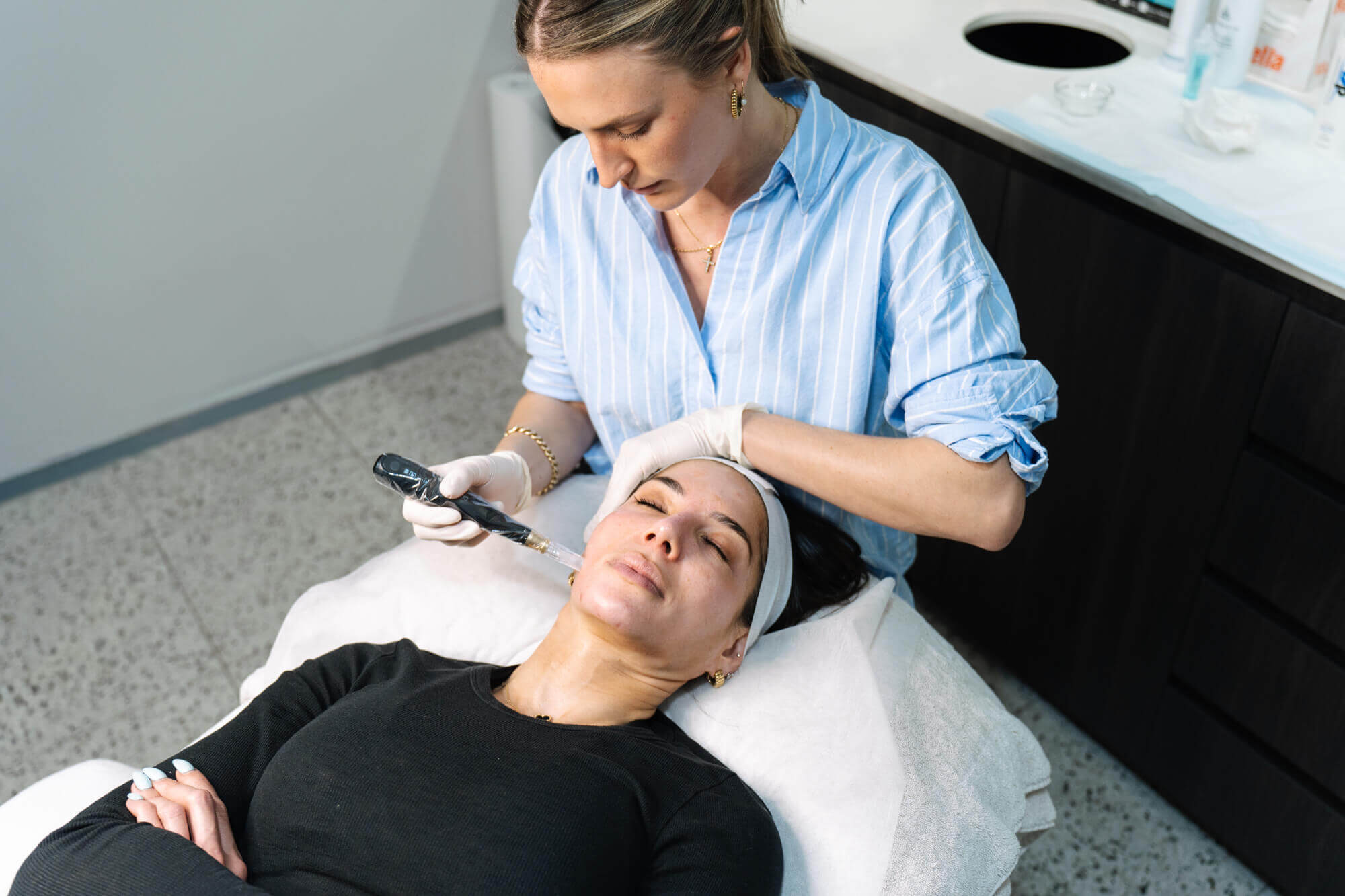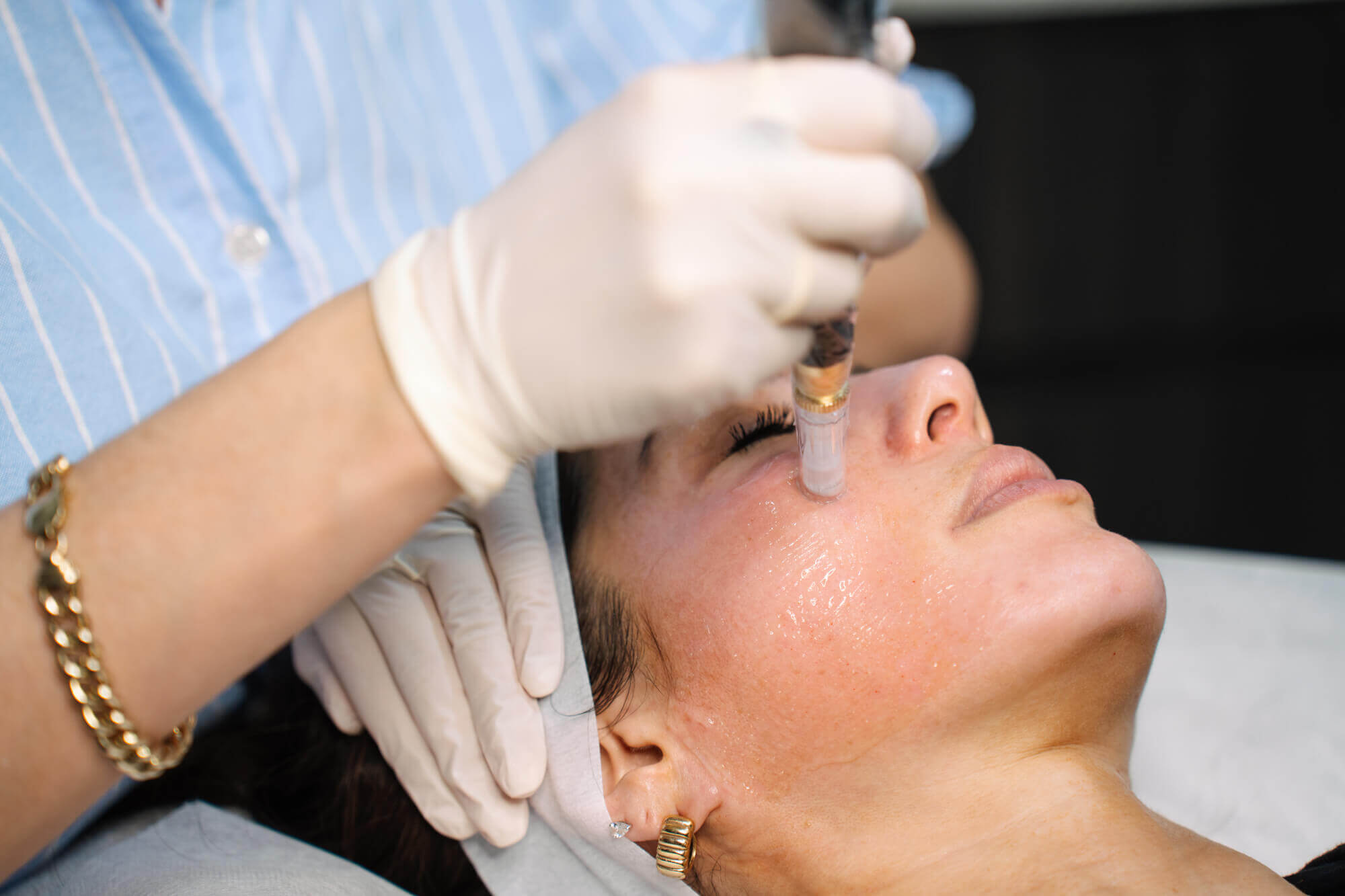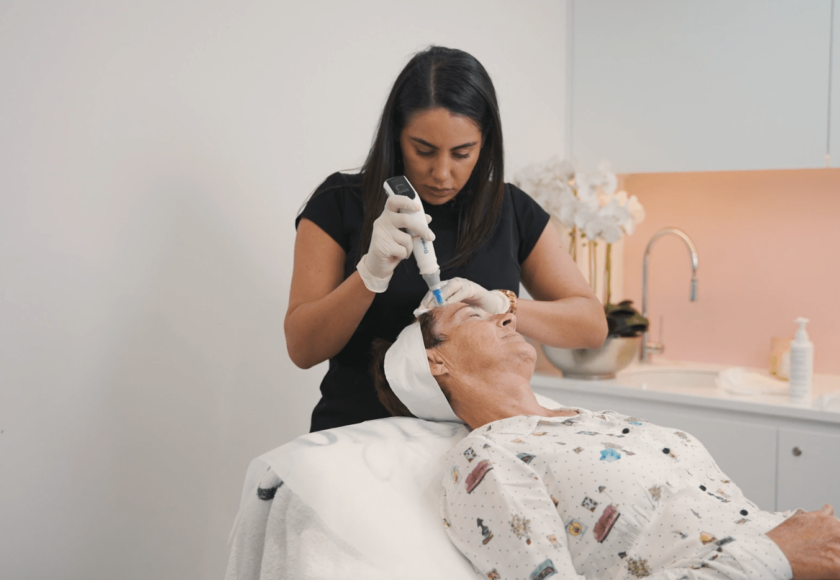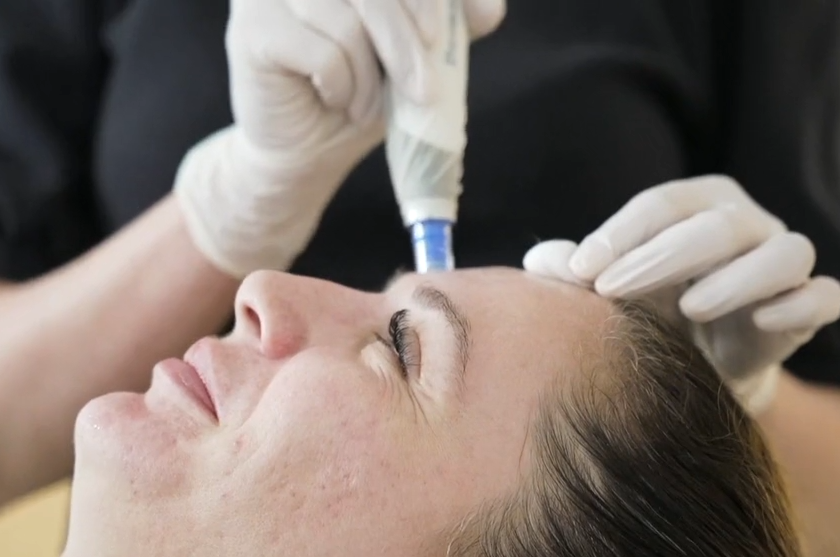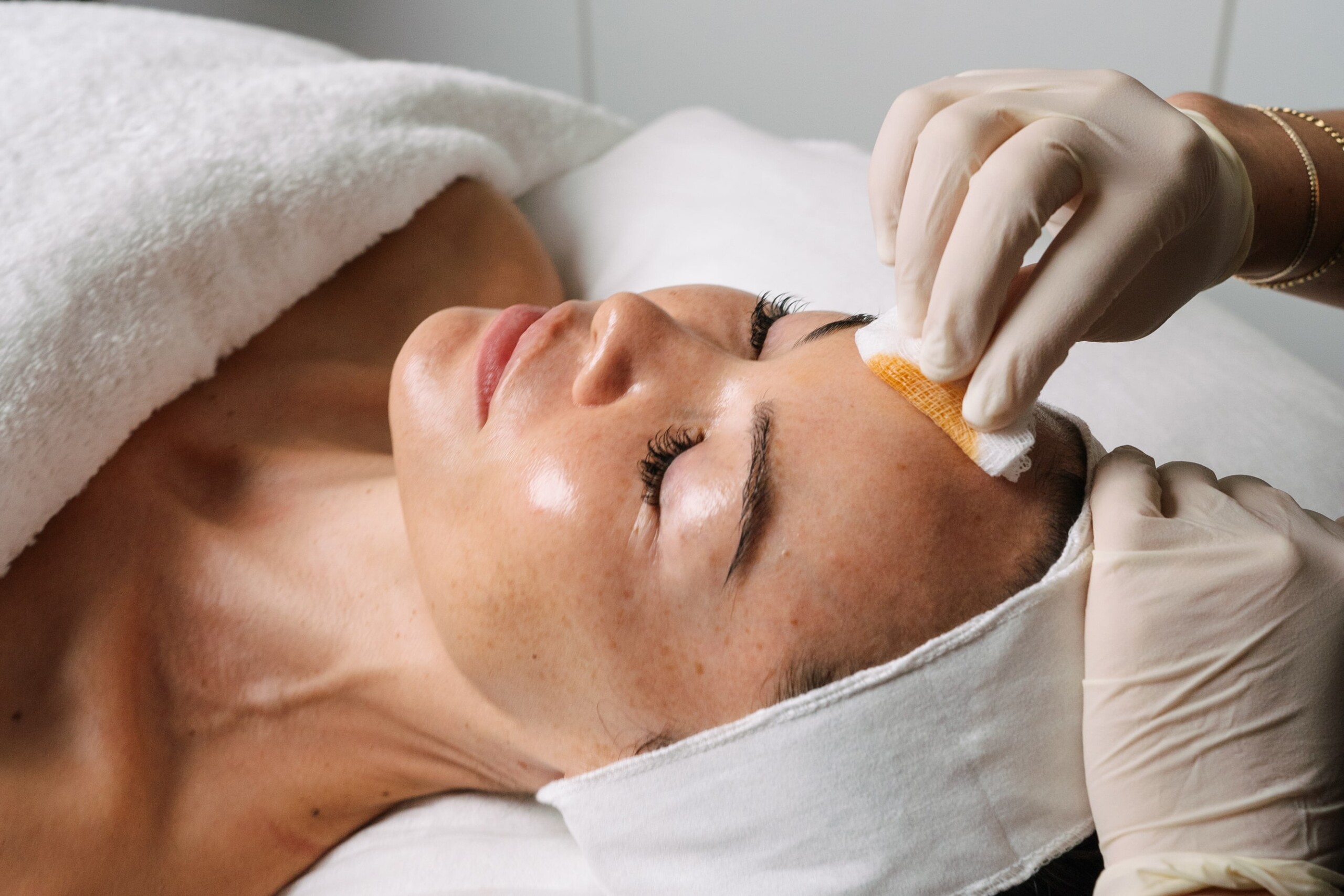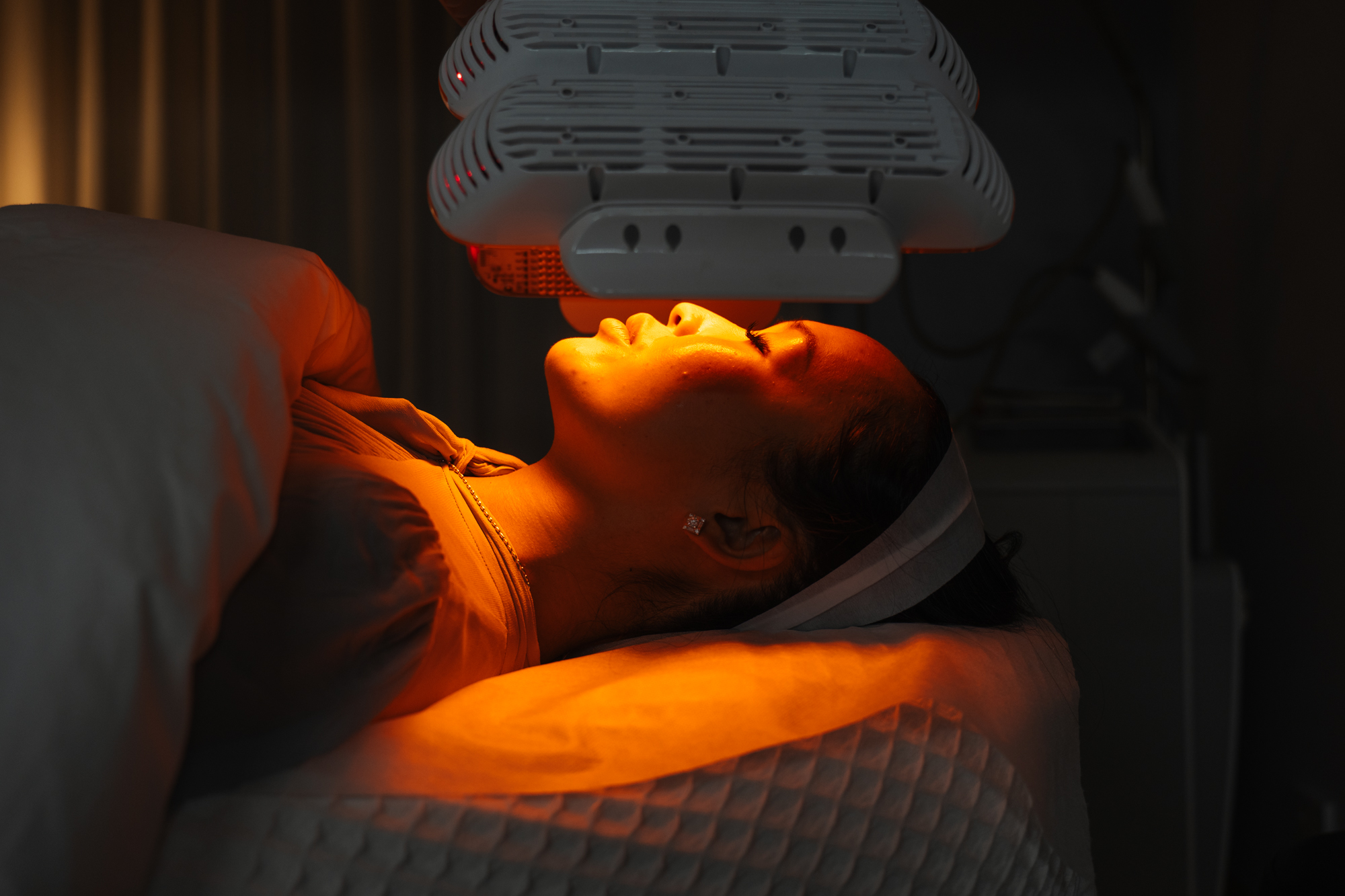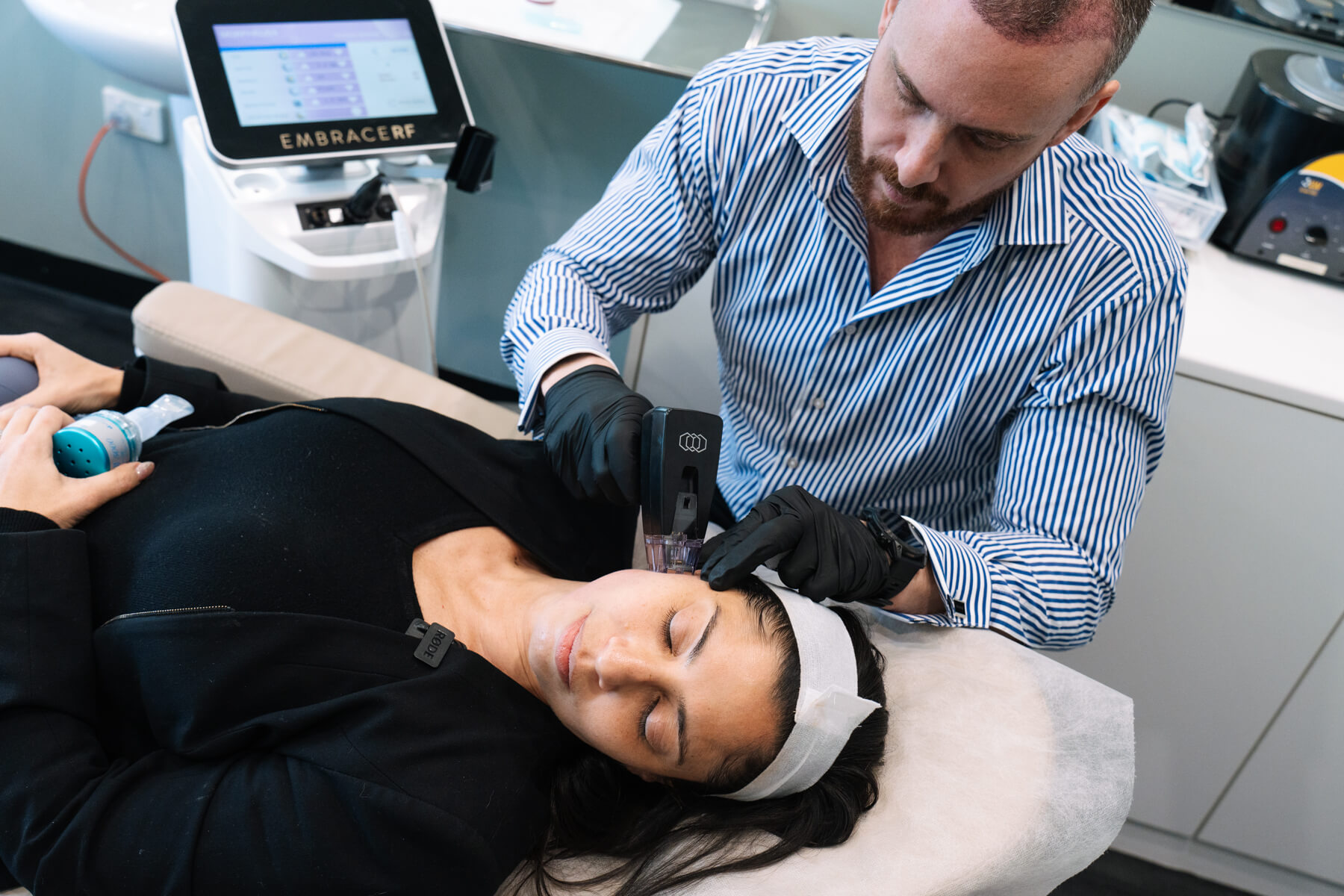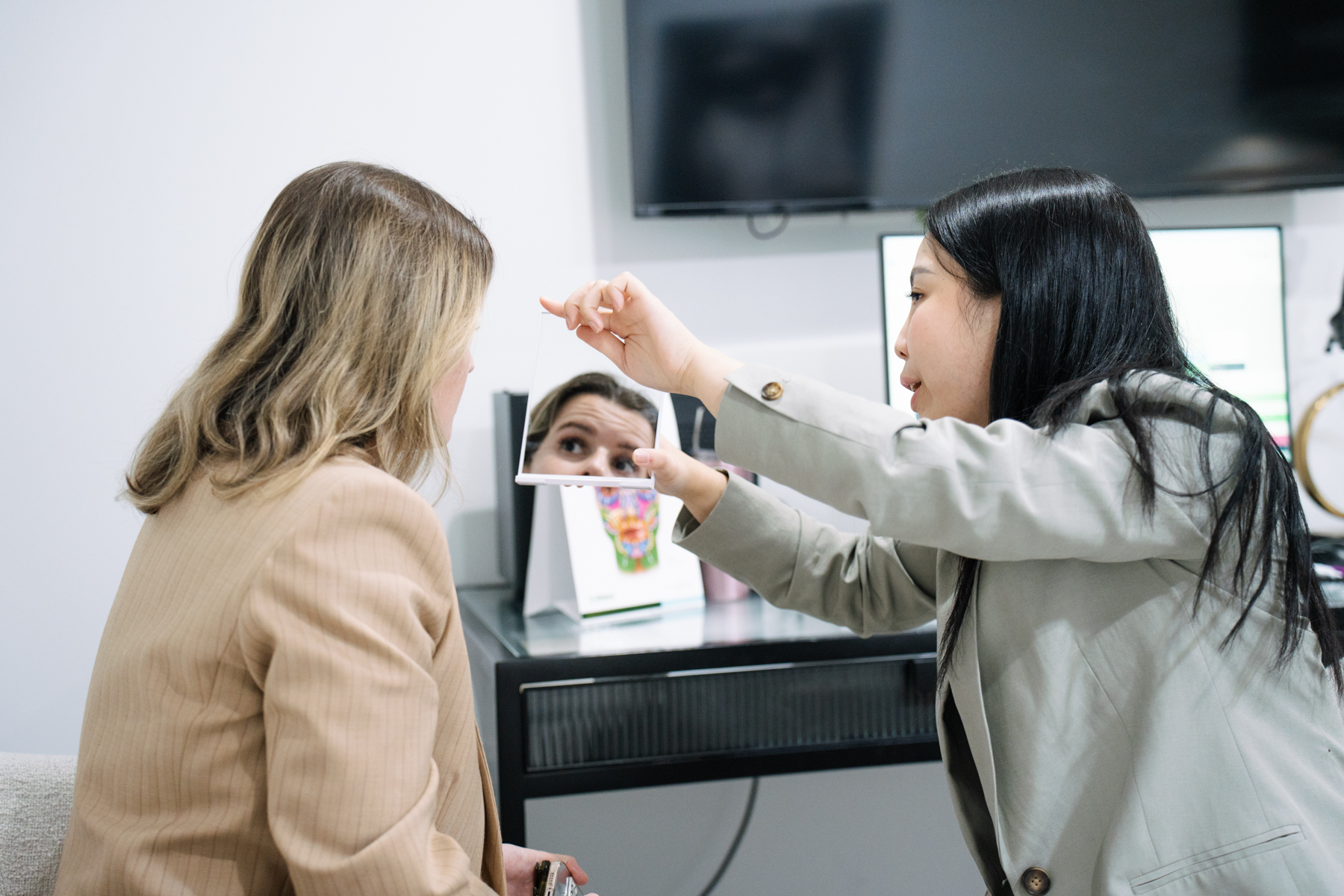How does skin needling work?
Dermal skin needling involves passing ultrafine needles over the skin to create microtrauma in the skins dermal layers. This stimulates the production of new collagen fibres, which results in lifting and rejuvenation of the treated area. It may also improve the appearance of pigmentation, enlarged pores, wrinkles, scarring and stretch marks.
Which skin concerns may benefit from skin needling?
Skin concerns that may benefit from skin needling treatments include:
-
Fine lines and wrinkles: May help smooth and soften visible signs of ageing by promoting collagen renewal.
-
Acne and surgical scarring: Aims to improve the appearance and texture of scars through collagen stimulation.
-
Uneven skin texture and enlarged pores: Potentially refines skin texture, reducing the visibility of enlarged pores.
-
Pigmentation and sun damage: May assist in fading pigmentation issues by encouraging skin turnover and renewal.
-
Stretch marks: Designed to soften and reduce the appearance of stretch marks through targeted collagen production.
-
Dark under-eye circles and tired-looking eyes: Aims to refresh and revitalise the delicate under-eye area.
Is skin needling worth it?
Skin needling aims to smooth the appearance of fine lines and wrinkles, refine enlarged pores, even out skin tone, reduce visible scarring (including acne scars), and soften the look of stretch marks.
Ratings on the consumer review website realself.com show 84% rated this procedure as worth it.
Does skin needling actually work?
Skin needling is among the most studied cosmetic procedures, with clinical research dating back to the early 1990s supporting its potential effectiveness.
Numerous clinical studies and systematic reviews support microneedling (also known as skin needling or collagen induction therapy) as a well-investigated cosmetic procedure. It may improve wrinkles, fine lines, scars, pigmentation, and skin texture by stimulating collagen and elastin formation (Journal of Plastic and Aesthetic Reconstructive Surgery- ScienceDirect).
Research indicates microneedling may boost fibroblast activity and increase collagen types I and III, with studies showing dermal thickening and elevated collagen levels lasting several months.
Some studies report measurable improvements, with one demonstrating a 28% increase in facial skin elasticity three months after four treatments (Aesthetic Surgery Journal).
Systematic reviews note evidence quality varies, but results consistently suggest potential benefits in treating ageing skin, acne and surgical scars, stretch marks, pigmentation concerns, and enlarged pores (Aesthetic Plastic Surgery Journal).
Periodic maintenance treatments, usually every 6 to 12 months, are commonly recommended for sustained results. Outcomes should always be realistically discussed during your consultation.
Who is a good candidate for skin needling?
Those looking to improve the tone and texture of their skin, smooth fine lines and wrinkles, stimulate collagen production and treat acne or general scarring are generally candidates for skin needling.
Skin needling is not recommended for those who are pregnant, have active skin infections/rash in the treatment area or are unwell.
To understand if skin needling is right for you, schedule a complimentary consultation with one of our experienced cosmetic clinicians.
Is skin needling suitable for acne scarring?
Skin needling is an excellent treatment for acne scarring. Skin needling is frequently used to target acne scarring. By creating controlled micro-injuries, skin needling aims to stimulate collagen production and skin regeneration, potentially improving the appearance and texture of acne scars. Clinical studies have shown positive outcomes for many patients with acne-related scarring; however, individual results vary. Your Cosmetic Doctor will carefully assess your skin and discuss realistic outcomes during your consultation.
We do not recommend skin needling over areas of active acne as this increases the risk of infection, particularly the risk of spreading flare ups. Active acne is often colonised with p.acnes bacteria.
Does skin needling work for rosacea or broken capillaries?
No. Skin needling is unlikely to improve rosacea.
Rosacea and broken capillaries will not improve with micro-needling. If anything, you may cause excessive bruising and bleeding if needling is used over active rosacea.
Rosacea or broken capillaries require laser or light based therapies for adequate treatment. See our Rosacea page for more information.
Is skin needling good for pigmentation?
Skin needling is often used to treat pigmentation, particularly Melasma.
Melasma is a condition that worsens with any energy based device that causes heat in the skin (most lasers, IPL, radio-frequency needling etc.). Skin needling may provide an acceptable solution for those with melasma as there is no heat delivered during treatment.
Skin needling may also be useful for smoothing irregular pigmentation in those with darker skin types, as some lasers and light based devices cannot be used in darker skin types.

